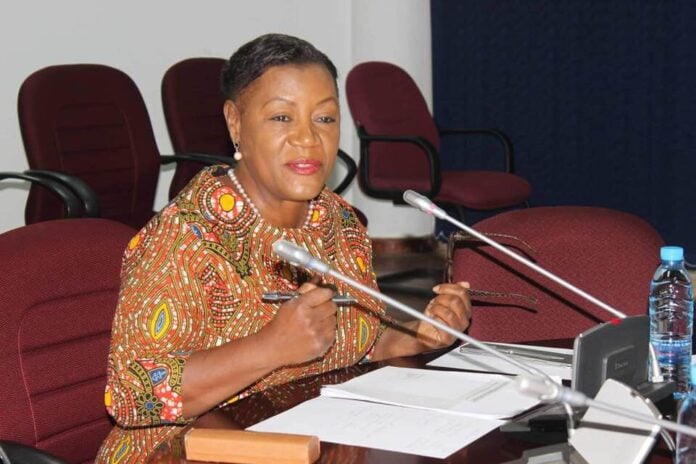Don’t Be Fooled by Power Supply,” Kateka Tells Compound Dwellers
New Heritage Party (NHP) president Chishala Kateka has cautioned Zambians, particularly those living in high-density areas, against being deceived by what she described as the government’s last-minute efforts to appease voters through increased electricity supply. Speaking in reaction to Energy Minister Makozo Chikote’s announcement that residents in compounds such as Kanyama and Matero were now receiving at least ten hours of power each day, Kateka argued the timing of the decision reflected political expediency rather than genuine service delivery.
For close to two years, Zambians have endured some of the harshest load-shedding in recent memory. Businesses collapsed, livelihoods were disrupted, and households adjusted to long hours of darkness. Against this backdrop, Kateka said it was telling that the government had suddenly found the capacity to extend power supply to compounds, less than a year before the 2026 general elections. “Do not be fooled,” she told residents. “When a government is about to be kicked out, they make promises they cannot keep. This is HH’s last term, and what they will do now is try to make more money because they know they are not coming back.”
The opposition leader drew a sharp contrast between the increased supply to compounds and the continued blackouts in low-density areas such as Woodlands and Kabulonga. Minister Chikote had justified the disparity by arguing that residents in these areas could afford alternative solutions such as solar installations. To Kateka, however, such reasoning amounted to discrimination. She stressed that both low- and high-density areas were interconnected: “Some residents in low-density areas have businesses and jobs that depend on electricity, just like those in compounds. It is not right to punish one group and favour another.”
Kateka’s remarks underscore a wider political narrative ahead of the 2026 elections. The NHP leader framed the electricity issue not simply as a matter of energy supply but as evidence of the government’s alleged desperation to secure votes. She warned that once the ruling party felt secure after elections, the power situation would likely revert to prolonged blackouts. “If people want to suffer another five years, let them vote for UPND,” she said. “But they should also remember to tell this government that they have come too late, mwakamba late.”
Her criticism extended beyond the question of timing. Kateka accused the government of enriching business associates of President Hakainde Hichilema through third-party contracts in the energy sector, claiming that ordinary Zambians bore the cost while insiders benefited. “They brought in this third party,” she said. “We are not afraid to mention that certain associates are making money at the expense of suffering Zambians. May God judge them harshly.” Although she stopped short of naming specific firms, the accusation reflects persistent opposition claims that key infrastructure sectors are being opened to entities linked to the ruling elite.
The broader debate around power supply has been a central issue in Zambian politics for decades, but it has grown sharper during the past two years of recurring load-shedding. President Hichilema himself has publicly promised that his administration would address the crisis methodically, pledging at one stage that load-shedding could be resolved within seven months. Yet critics such as Kateka argue that these promises have failed to materialise, and that the recent increase in electricity hours in selected areas cannot erase the hardship endured by millions.
Beyond political arguments, the human impact of power shortages has been immense. Small traders in markets have struggled to preserve perishable goods, welders and hairdressers have lost customers, and school children have been forced to study by candlelight. The abrupt restoration of longer supply hours in compounds may therefore be welcomed by some residents as overdue relief. However, as Kateka insists, the sudden change raises questions: if ZESCO and government had the capacity all along, why was it not applied consistently during the darkest days of the crisis?
As the 2026 elections draw closer, electricity supply is likely to remain a critical political battleground. The government will tout improvements as proof of delivery, while opposition figures will argue that the timing betrays a calculated election strategy. For Kateka, the matter is straightforward, the people should not be seduced by temporary gestures. “What we are seeing now is not reform but appeasement,” she said. “Zambians deserve fairness, not last-minute theatrics.”
Whether her message resonates across compounds and townships will become clear in the months ahead. For now, the debate over power supply illustrates the deep intertwining of public utilities with Zambia’s political fortunes, and the way energy provision — or its absence,can influence electoral outcomes.


